By Doug Boilesen
Orchestras, organs, and
pianos would provide most of the 'sound' for the silent films. The
phonograph, however, was also a contributor to making "silent
films" not silent.
A "Victrola" provides the
music for two songs in the 1920 film "Why Change Your Wife."
In the following article from The
Talking Machine World, The Lehman Music house In St. Louis is
highlighted for providing a Victrola and the Victor records "Hindustan"
and "Dying Poet" to a movie theatre after Mr. Lehman had
watched the Cecil B. DeMille film "Why Change Your Wife."
The article goes on to describe how
Mr. Lehman realized the advertising opportunity he would have if he
could replace the orchestra at just the proper time with the Victrola's
music.
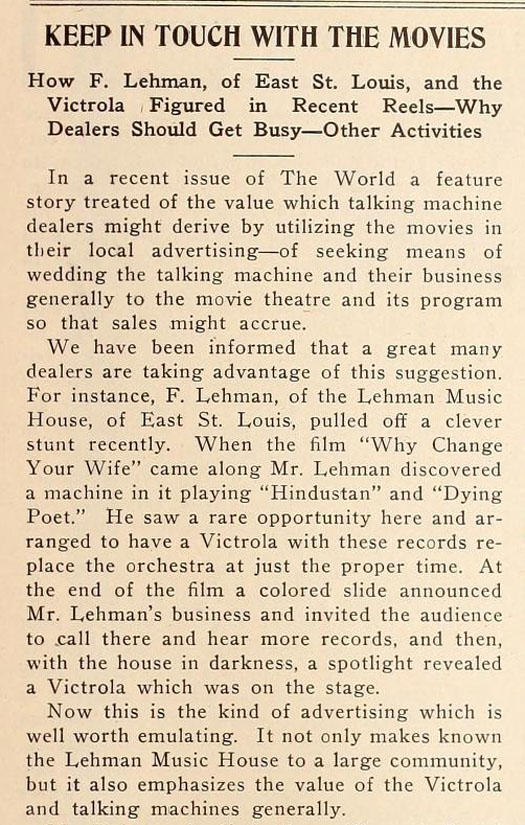
The Talking Machine
World, June 15, 1920, p. 3.
Scenes from "Why
Change Your Wife" featuring Victor Records
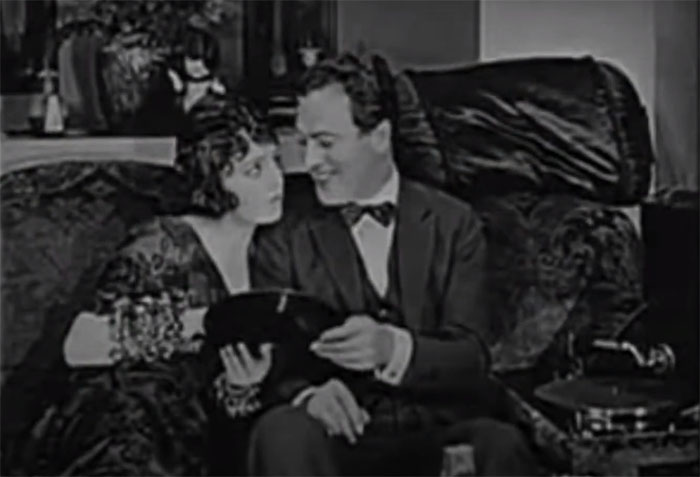
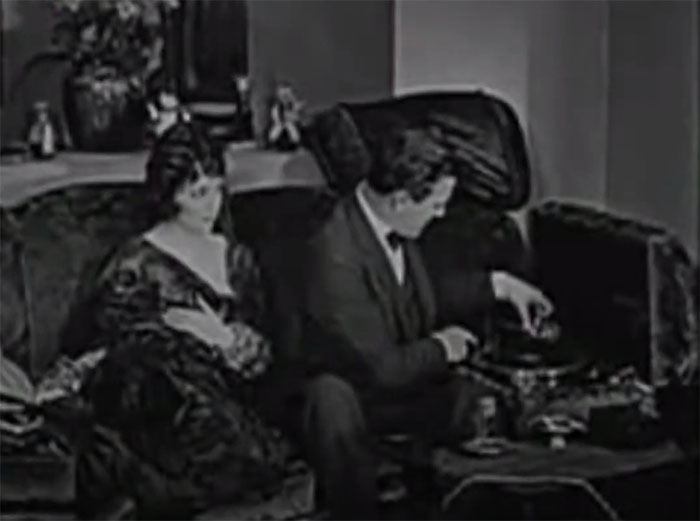
There is actually a third
record scene also in this film. This screenshot shows the married
couple looking at Victor Record 18623-A "Give Me a Smile and
Kiss" with their phonograph to the right and then putting the
stylus onto the record (a close-up of the Victor record is also shown
in the movie so that the audience can read its title).
LISTEN
to Victor 18623-A "Give me a smile and kiss" / John
Steel (Black label (popular) 10-in. double-faced) recorded on September
20, 1919 and released on September 29, 1919. (Source: DAHR Recording
from Library of Congress).
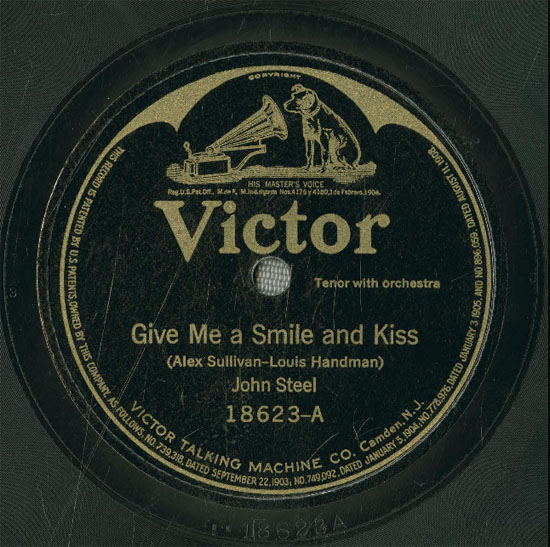
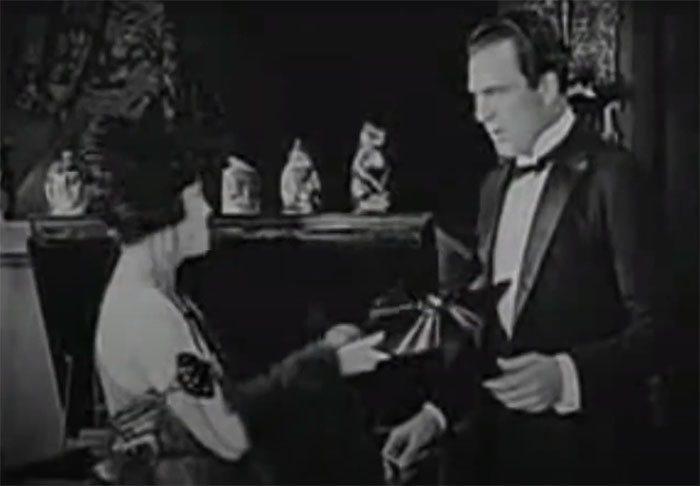
The above screenshot of
the wife seemingly upset with the record and breaking in half after
she hears Victor Record 35426-A "The Dying Poet" and comes
into the room. A close-up of that record (before breaking it) was
also shown in film.
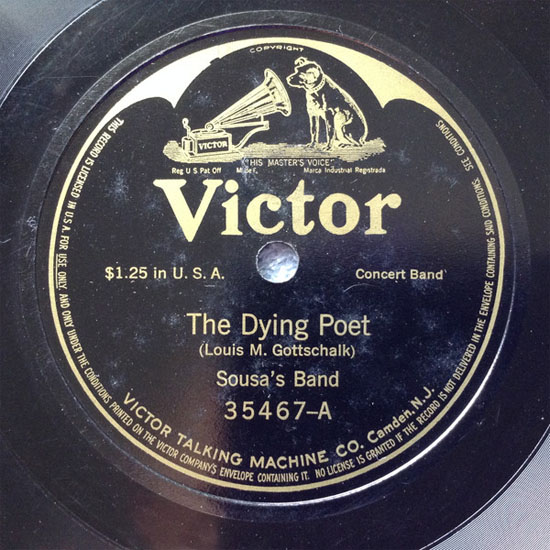
LISTEN
to Victor Record 35467-A "The Dying Poet," Sousa's Band,
recording May 14, 1912 (Courtesy Library of Congress).
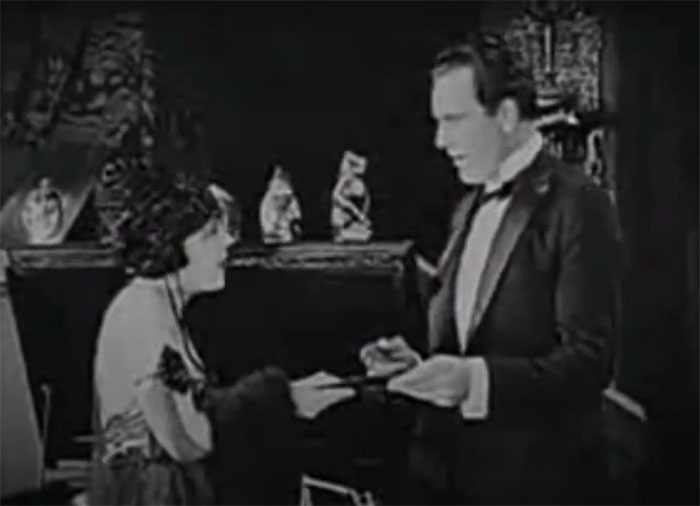
Another screenshot of the
wife selecting Victor Record 14507 "Hindustan" reveals that
she wasn't really upset as apparently breaking "The Dying Poet"
was some sort of joke. They happily play "Hindustan," dance
and then kiss.
LISTEN to Victor
18507-A "Hindustan" performed by Joseph C. Smith's Orchestra,
(Black label (popular) 10-in. double-faced) released on July 17, 1918
(Source: DAHR - Recording Courtesy David Giovannoni Collection).
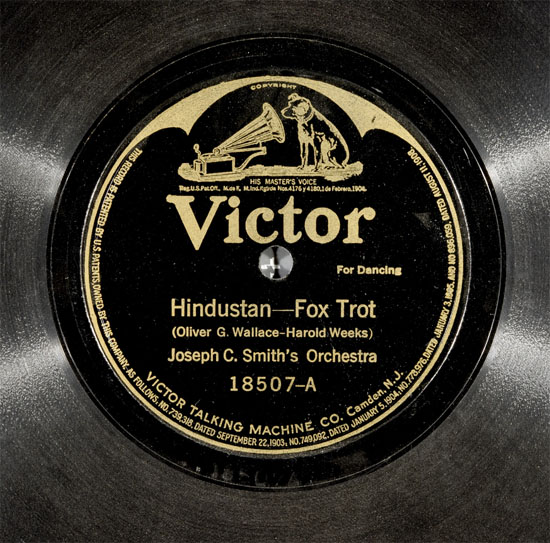
All is well for the married
couple as the film concludes with its moral of the story provided
in the film's closing intertitle.
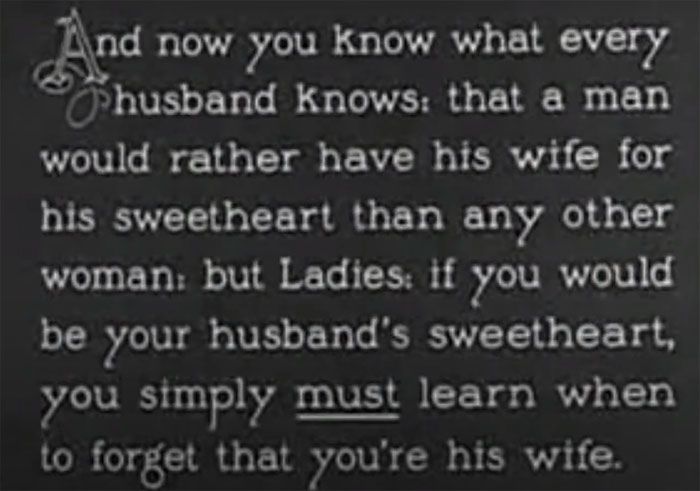
Lehman
also created a colored slide which invited the audience to visit his
store and hear more records. With the house in darkness, Lehman also
arranged to have a spotlight reveal a Victrola which was on the stage.
"Now this is the kind of advertising which is well worth emulating"
noted The Talking Machine World.